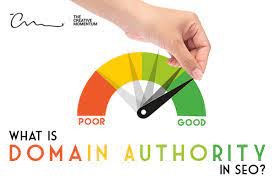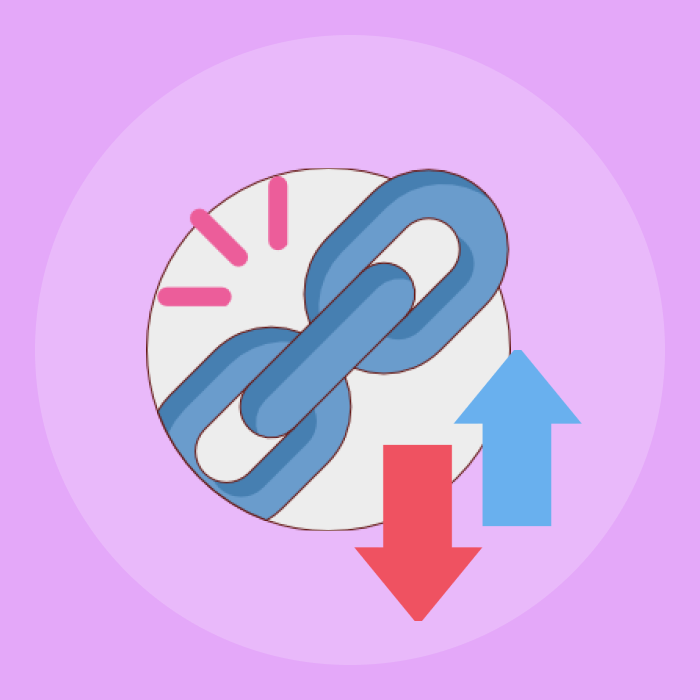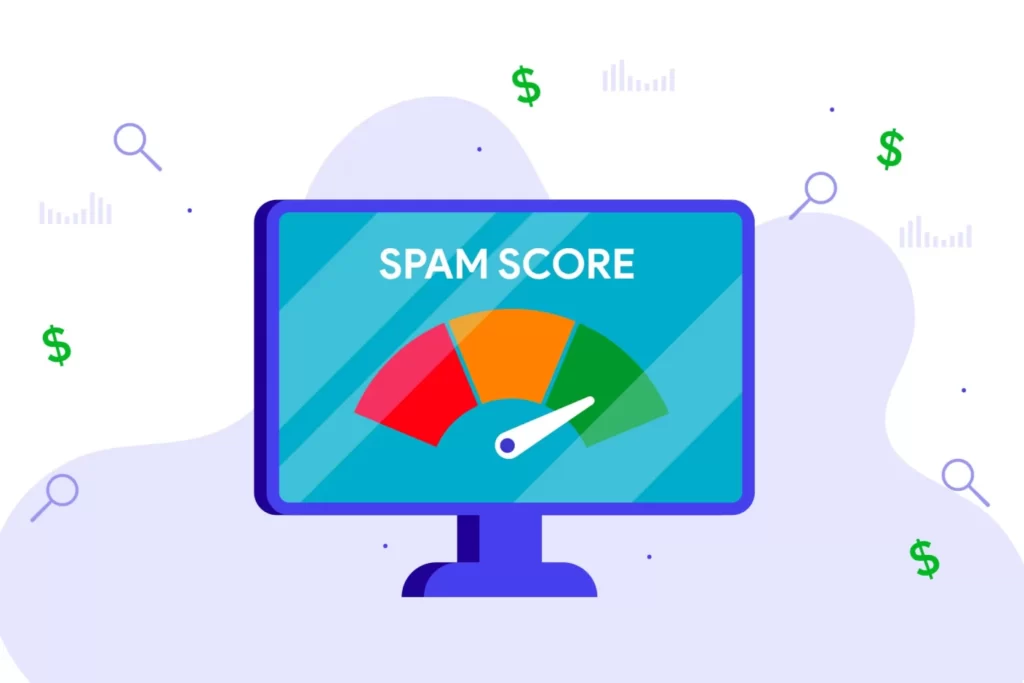
Moz Domain Authority and Page Authority are two of the most popular metrics marketers use to determine a domain’s ability to rank in the SERP.
Moz’s Domain Authority is a search engine ranking score that predicts how likely a website is to rank in the SERP, with scores ranging from one to 100.
Moz’s Page Authority measures the predictive ranking strength of a single page. Both metrics are calculated using the same methodology and are widely used in the SEO industry.
While Moz is not the only platform that has developed a metric for measuring website authority, it is among the most respected.
But Is It Really That Much Accurate?
When analyzing Domain Authority (DA), having the same number and standard of links on a website as another website does not guarantee improvement in DA.
Even if the content density is the same, there are almost no meaningful reasons for one website to rank while another does not. DA is a search engine ranking score that predicts how likely a website is to rank in search engine result pages (SERPs).
DA is based on machine learning calculations and is constantly compared against every other website.
DA is not a Google ranking signal but may help predict a website’s search performance. To improve DA, create quality content on the website, share it, and conduct outreach, asking sites that don’t already link to you for a link to your new page.
Ensure that your site structure is easy for search engines to use for crawling your pages and provides a great user experience for your visitors.
4 Reasons Why Domain Authority Is Not An Accurate SEO Metric
Here are the four reasons Domain Authority doesn’t look like the most accurate SEO metrics.
1. The Domain Authority Score Of The Sub-domain Is Not Equal To The Domain
According to Moz, the domain authority remains the same for a website and its subdomains.
How can this difference be explained?
The accuracy of Domain Authority metrics could be better, as other websites can get the same DA for their sub-domains just by building links for the main domain.
This creates doubt about the ranking capabilities of sub-domains. Domain Authority measures the predictive ranking strength of entire domains or subdomains, while Page Authority measures the strength of individual pages.
Domain Authority is calculated by evaluating multiple factors, including linking root domains and the total number of links, into a single DA score.
Using Domain Authority as a comparative metric rather than an absolute one is essential.

Source: thecreativemomentum.com
2. Link Quality Has No Accountability
The first website should rank if you have backlinks from many high-DA websites and someone else has backlinks from a lower-DA website.
Many believe that a website with a higher domain authority (DA) will consistently rank higher in search engine results. However, this is only sometimes the case.
There needs to be a clear argument that explains why this happens. Even if we consider spam scores, the difference in ranking should be lower than it is.
Many websites rank quickly on rich keywords despite having a DA as low as 40, while others with a DA of 50 or 60 ranks lower.
So, in the war of relevance vs domain authority, relevance always wins.

Source: cms-connected.com
3. It Sometimes Decreases For No Reason
Moz claims that a decrease in backlinks or promotional links detected by the crawler can cause a reduction in a website’s domain authority.
However, there are many instances where the domain authority of websites has decreased for no apparent reason.
Domain authority is calculated using various factors, including the number of linking root domains and links.
Moz’s Domain Authority Score is not the only metric for measuring website authority; other SEO platforms have developed similar metrics.
While Google may have metrics similar to Domain Authority, it has denied using Moz’s Domain Authority score in its search results.
Domain Authority (DA) is a logarithmic-based scoring system that predicts how likely a website will rank in search engine result pages (SERPs).
However, it is not a Google ranking factor but rather a predictor of the likelihood that one domain will outrank another.
The DA score is determined by evaluating multiple factors, including linking root domains and the total number of links, into a single score.
While it is easier to grow your score from 20 to 30 than from 70 to 80, it should be challenging to score up and down, or at least it should take the same amount of effort in both cases.
In many cases, the DA decreased even when the quality backlink counts increased.

Source: thenextscoop.com
4. Spam Score Is A Spam
Websites like Google Analytics and Yahoo have spam scores, but websites using duplicate content don’t have any spam scores. It questions the existence of these metrics and also its credibility.
The Spam Score is believed to depend on the quality of your backlinks. If you get a backlink from a spammed website, Moz will notice it and show a change increase in your website’s Spam Score accordingly. However, the network itself is not accurate.
If you are linking to a good website like Google Analytics or Yahoo or getting links from there, your Spam Score will be affected as those websites have high spam scores.
So, if you get backlinks from premium websites such as Google Analytics or Yahoo, you may get a spam score. Really?!
Also, there is evidence that websites are not affected by backlinks from many high Spam Websites. In other cases, websites got spam scores just by linking to a few spammy websites.

Source: captainverify.com
5. Inconsistent Algorithm Updates
Domain Authority is based on Moz’s proprietary algorithm, which is not publicly disclosed. As a result, changes to the algorithm and updates made by Moz can lead to sudden shifts in domain scores. This lack of transparency and consistency can make relying on DA as a stable and accurate metric for long-term SEO strategies challenging.
FAQS
Q1. Why Is Domain Authority Important?
DA is important for two reasons: it helps search engines assess the reliability and trustworthiness of any website, and it is a valuable metric to know the status of a website about similar competitors. A high DA does not guarantee a high ranking on search engines. Still, it can be a helpful tool to evaluate the results of digital strategies and understand the impact of DA and other link-based metrics on a site’s rankings and popularity. To improve DA, it is essential to focus on quality over quantity and to earn authoritative backlinks over time.
Q2. Do You Want A High Or Low Domain Authority?
Generally, a higher domain authority is better because it indicates a more substantial ranking potential. However, what is considered a “good” domain authority score can vary depending on the website and its competitors; for example, websites like Google, Apple, or Microsoft will have a high DA (between 95 and 100); ultimately, it is essential to analyze your top competitors and draw conclusions tailored to your website, based on your ranking as well as the rankings of your competitors. It is also important to note that raising your domain authority is a long-term process that requires quality backlinks and better traffic. While there are several ways to go about it, focusing on being an excellent resource for users is crucial.
Q3. How Is Domain Authority Calculated?
DA is calculated by evaluating multiple factors into a single DA score, including linking root domains and a total number of links. The calculation uses a machine learning model to predictively find a “best fit” algorithm that closely correlates Moz’s link data with rankings across thousands of search results Moz has collected. The score can then be used when comparing websites or tracking a website’s “ranking strength” over time. It’s worth noting that Moz is one of many SEO platforms that has developed a metric for measuring website authority.
Conclusion
Just targeting Domain Authority should not be your priority in SEO. You can use Domain Authority for analysis purposes, but remember that the scores don’t need to explain everything.Alexa Ranking & Ahref Domain Rating are better metrics than Moz’s domain authority. They seem more accurate and practical. More than anything, the success of your SEO is more traffic, which can be earned with relevant website content and backlinks.








No Comments